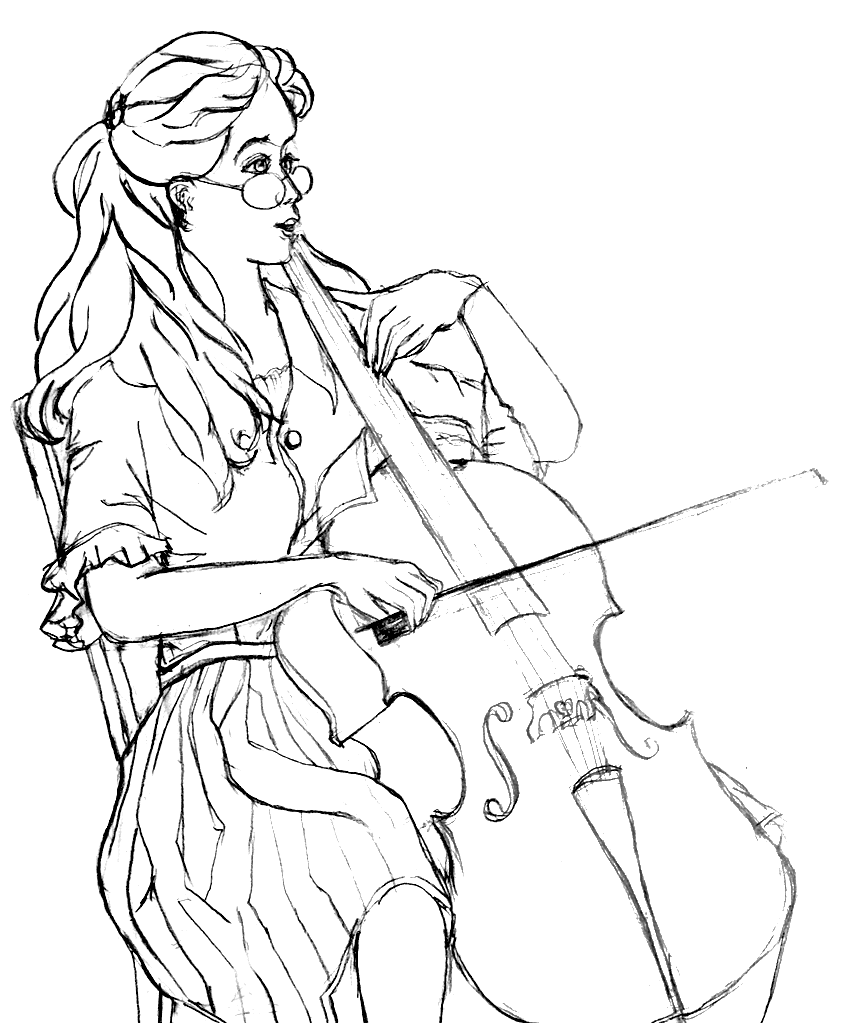When the Chicago Academy of Music opened its doors at University Church on 56th Street and University Avenue on February 1, there was no need for redecoration: the art and posters on the church library’s walls seem to have been placed just so as to pave a path to creativity. The eclectic furnishings make the room look like it was always destined to be a music school.
But the opening was a long time coming—CAM, which was founded in 2011, struggled for nearly four years to find a brick-and-mortar home for its founder’s vision.The new school, opened in collaboration with the Chicago Metamorphosis Orchestra Project, makes children’s programming its centerpiece, with a youth orchestra, music activities, and group lessons. Older students may enroll in private lessons, and the school offers a limited number of instrument and tuition scholarships.
Michael Scott Carter, CAM’s executive director and founder, has far broader ambitions, however. “Where do you go in Hyde Park to really experience music?” he asks, not rhetorically. “Nowhere,” is his apparent answer.
Carter wants CAM to become the musical center of Hyde Park, a place to host performances and foster musical collaboration in the community. As a supplement to its children’s programming, CAM is also organizing a volunteer orchestra for neighborhood residents.
As he discusses the project, Carter grows nostalgic about the lively, frequent music performances he experienced as a youth in Roseland.
“When musicians come to Chicago, I want them to stop here,” he says with earnest, syncopated bounciness. It’s hard not to get caught up in his vision.
These expansive ideas flow easily from Carter, who seizes on grandiose projects with sincerity. His own colorful and varied experiences are evidence of this ambitious idealism: he serves on the United Nations’ Leading Group on Innovative Financing for Development, ran for Illinois state treasurer in 2013, and is chief economist of the Chicago Urban League’s Entrepreneurship Center.
It’s difficult to tease out just why Carter’s added a music school to that resumé, but it’s consistent with a goal he returns to again and again: creating an enduring South Side enterprise that will provide a community haven for youth.
“It’ll give these kids some place to go to. Where else will they go?” he asks. “If you live here, there’s not much for you, unless you have well-informed parents or park events nearby.”
An excess of ambition, though, was part of the reason for CAM’s four-year struggle to launch. The organization’s original goal was to establish twenty free conservatories for children on the South and West Sides, funded by revenue from an associated café and a daycare service. The project ultimately lacked financial footing, as CAM failed to attract the big donors it needed to fund the conservatories.
At that time CAM didn’t have partnerships with organizations like the University Church and ChiMOP, and Carter hadn’t yet had the idea to fundraise through performances. He also struggled to find a location large enough to house the daycare service. “Eventually, we realized that we needed to give up on the idea of getting ourselves one building to house everything,” he says.
But even now, Carter has not given up on his original goal, as he points out that CAM’s new music school is currently receiving plenty of funding. He attributes this victory to the impressive array of musicians working with the school, a group he assembled with the help of his friend George LePauw, a concert pianist and the creative director of the International Beethoven Project. The concert fundraisers have also helped, including a New Year’s event featuring a flamenco-Beethoven fusion performance. And in the end, part of Carter’s original vision will be realized: CAM’s University Church space will feature a café adjacent to the library room. It’s not the entire original plan, but it’s a first step in catching up with Carter’s unrestrained optimism.


